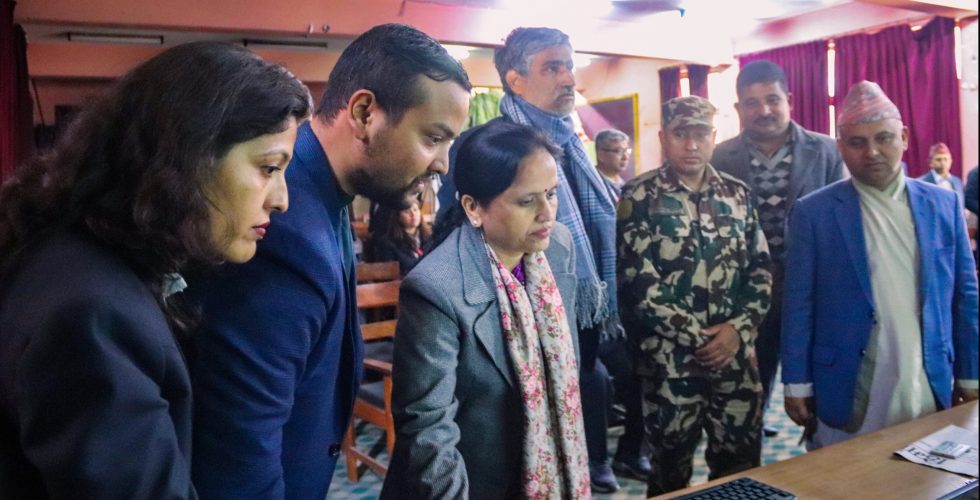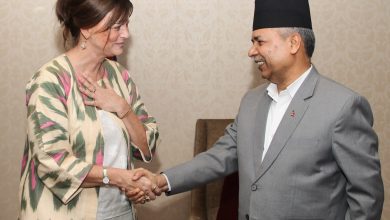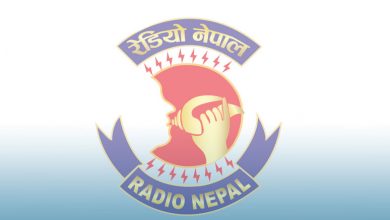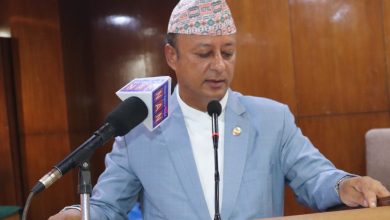State Media should serve as bridge between State, citizens: Minister Sharma

Kathmandu, Jan 8: Minister for Communications and Information Technology, Rekha Sharma, has said the State-owned media should serve as a means of establishing a vital link between the State and the citizens.
In an event marking the launch of the RSS news service in the Awadhi language, Minister Sharma expressed the view that State-owned media should function as a conduit, conveying government activities to the public and bringing citizens’ concerns to the attention of the government.
During the inauguration ceremony, the Minister stressed that such media houses are expected to inform the government about the challenges, expectations, and needs of the people while at the same time making citizens aware of the positive initiatives undertaken by the government.
The inclusion of the Awadhi language in the RSS news bulletin will obviously be great support to those mother tongue-based media when they face challenges to perform effectively amidst the limitations of resources, the Minister said.
She announced that incorporating the Awadhi language into the RSS news bulletin was itself the assimilations of the spirit of federalism and inclusion enshrined by the Constitution. “It is the responsibility of the government to implement federalism and inclusion, and the expansion of the RSS service in the Awadhi language should be considered as the government programme,” she said, adding that it is equally important to establish the responsibility of the province and local governments as well in such endeavors.
The inclusive characteristic that Nepal has adopted following the latest political change is itself exemplary in the world, according to the Minister who said the outcomes of inclusion have started becoming visible in State apparatuses.
She also took time to state that Nepal has been transformed into a multi-lingual, multi-religious and multi-cultural nation in a true sense after the latest political transformations.
“All the Nepali people, with multiethnic, multilingual, multi-religious, multicultural characteristics and in geographical diversities, and having common aspirations and being united by a bond of allegiance to national independence, territorial integrity, national interest and prosperity of Nepal, collectively constitute the nation,” we have constitutionally defined the Nation this way, the Minister said. “All languages spoken as the mother tongues in Nepal are the languages of the nation,” she added.
“A province may, by province law, determine one or more than one languages of the nation spoken by a majority of people within the State as its official language(s), in addition to the Nepali language,” she reminded the Constitutional provision. There is also the Language Commission established constitutionally to make recommendations to the Government of Nepal, on the measures to be adopted for the protection, promotion and development of languages, the Minister said, adding that none should feel exploitation and discriminations on the basis of languages.
During the event, Krishna Bahadur Raut, the Secretary at the Ministry of Communications and Information Technology, lauded the inclusion of mother tongues in the RSS news bulletin, recognizing it as a significant step towards promoting mother languages, literature, and safeguarding mother tongues.
“Many languages currently face the threat of extinction. No language can sustain in absence of their archiving and the use in the communications. It is a milestone achievement for the RSS to disseminate the contents in the mother tongue.” He also advised the RSS to incorporate other more mother languages in its services, pledging all sorts of possible support on behalf of the Ministry towards that end.
Chair of Federation of Nepali Journalists, Bipul Pokhrel said the role of news contents on mother tongues is vital to increase the civic acceptance and ownership to media. He also highlighted the need of increasing the editorial competency in media to explore issues of mother tongue population. The FNJ Chair proposed the RSS to provide its contents free of cost to small-scale media. He advised the RSS to focus on creating original contents on the mother tongues in addition to their translations and trans-creations.
Advertisement Board Chair Laxman Humagain praised the RSS for its move to disseminate the contents in the mother tongue. This diversification has promoted the concept of inclusive media, he said, adding that it will be a great support for mother tongue media.
RSS Executive Chair Dharmendra Jha said the diversification of the RSS service suggested the RSS partnership with the government for its policy departure. “The moment it itself is historic. The RSS has not only accepted democracy, federalism and inclusion, but has internalized them and implemented.”
Mother tongue-papers face the sustainability issue due to lack of contents, he said, adding that the RSS news service on the mother tongue would feed such media houses. He also acknowledged the support of the Nepalgunj Sub-metropolis in materialising the RSS efforts to diversify its services.
RSS General Manager Siddha Raj Rai expressed his hope that the incorporation of mother tongue contents in the RSS news service will contribute to making news dissemination more effective and promoting the mother tongues that are spoken in the country.
Sharing about the RSS plans for diversification its services, he said they plan to launch the additional news service in way that it will represent at least one language from one province, hoping for the support and the cooperation from the three-tier government towards that end.






Comments